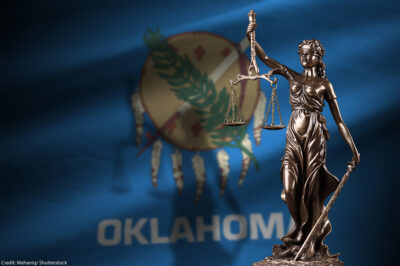A Day in Court for Civil Rights Claims: The Supreme Court Tackles the Ministerial Exception
Do religious institutions get a categorical free pass to discriminate against certain employees, regardless of the reason? That issue lies at the heart of Hosanna-Tabor Evangelical Lutheran Church and School v. Equal Employment Opportunity Commission (EEOC), a case now before the U.S. Supreme Court. In a friend-of-the-court brief filed today by the ACLU, the ACLU of Michigan, and a coalition of religious liberty organizations, we argue that the answer must be a resounding "no."
The case involves a lawsuit under the Americans with Disabilities Act (ADA) filed by the EEOC and Cheryl Perich, a school teacher of primarily nonreligious subjects like social studies, math, and science, against Hosanna-Tabor, a church-run Lutheran grade school. Perich and the EEOC claim that the school summarily fired Perich after she took a leave of absence to treat her narcolepsy and in retaliation for asserting her ADA right to be free from such discrimination.
In response, Hosanna-Tabor has argued that, under a "ministerial exception" to civil rights laws like the ADA and Title VII, the federal courts are constitutionally barred from even considering Perich's claims. As interpreted by the lower courts, the ministerial exception generally grants a religious organization immunity from employment discrimination suits brought by "ministerial" employees — that is, those employees primarily engaged in leading the faith and advancing its religious mission. (Until now, the Supreme Court has never squarely addressed this issue.) The court of appeals in the Hosanna-Tabor case, however, refused to apply the exemption to Perich's claims, and we agree that the case should go forward.
Our country's vital, unwavering commitment to religious liberty demands that faith communities enjoy considerable independence over core religious decisions. But the right of religious exercise — which the ACLU has consistently and ardently defended — is not absolute.
While faith communities clearly have the right to set religious doctrine and decide which ministers best advance their religious beliefs and practices, free from government intrusion, they shouldn't have carte blanche to discriminate or retaliate against their employees.
In light of our national dedication to promoting equality and combating discrimination — as reflected in our civil rights laws — a ministerial exception to those laws should be narrowly crafted, going no further than necessary to preserve religious liberty. The exception, therefore, should immunize discrimination against ministerial employees only when the challenged acts are religiously motivated or serve the religious aims of the institution.
In this case, there is ample evidence that Cheryl Perich was fired because of her disability and the assertion of her legal rights under the ADA — and not for any religious or doctrinal reason. She should have her day in court.
Learn more about religious liberty: Sign up for breaking news alerts, follow us on Twitter, and like us on Facebook.





